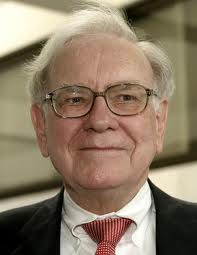
For years now, Warren Buffett‘s name has been nearly synonymous with the term 'value investing'. A disciple of Benjamin Graham, the man known as the 'Father of Value Investing', Buffett has become the world’s most well-known investor thanks to his ability to ascertain the value of various securities and then buy them for less, a concept at the core of value investing. 'Price,' he has said, 'is what you pay. Value is what you get.'
But to label Buffett a 'value investor' is probably an oversimplification. In reality, his strategy involves several different factors. In fact, in a recent paper, three members of AQR Capital Management found that value is not what has driven Buffett’s success over the past few decades. 'The standard academic factors that capture the market, size, value and momentum premia cannot explain Buffett’s performance so it has to date been a mystery,' write Andrea Frazzini, David Kabiller, and Lasse H. Pedersen.
But in their study, they say, they 'find that the secret to Buffett’s success is his preference for cheap, safe, high-quality shares combined with his consistent use of leverage to magnify returns while surviving the inevitable large absolute and relative draw downs this entails.'
They estimate that Buffett applies about 1.6-to-1 leverage, financed in part by the Berkshire’s insurance float. They also find that Berkshire Hathaway‘s public holdings over the 1980-2011 period averaged a beta of 0.77, meaning that they tended to be a good deal less volatile than the broader market.
After studying Buffett for more than a decade, I wasn't too surprised that high-quality, safer picks are responsible for his success. My Buffett-inspired share analysis strategy, which is based on the approach Buffett used to build his empire, puts just as much (if not more) emphasis on quality and stability than it does on value metrics, and quality shares tend to be less volatile.
My strategy looks for companies that have increased earnings per share in all or almost all years of the past decade at a stable rate; have enough annual earnings that they could, if need be, pay off all their debt within five years; and which have averaged returns on equity of at least 18% over the past 10 years–all signs of very high-quality businesses.
Whatever you want to call it, value investing, high-quality investing, low-beta investing high-quality-low-beta value investing, Buffett’s impeccable track record shows that his approach is well worth following.
Be Extraordinary!
Myles Rennie
But to label Buffett a 'value investor' is probably an oversimplification. In reality, his strategy involves several different factors. In fact, in a recent paper, three members of AQR Capital Management found that value is not what has driven Buffett’s success over the past few decades. 'The standard academic factors that capture the market, size, value and momentum premia cannot explain Buffett’s performance so it has to date been a mystery,' write Andrea Frazzini, David Kabiller, and Lasse H. Pedersen.
But in their study, they say, they 'find that the secret to Buffett’s success is his preference for cheap, safe, high-quality shares combined with his consistent use of leverage to magnify returns while surviving the inevitable large absolute and relative draw downs this entails.'
They estimate that Buffett applies about 1.6-to-1 leverage, financed in part by the Berkshire’s insurance float. They also find that Berkshire Hathaway‘s public holdings over the 1980-2011 period averaged a beta of 0.77, meaning that they tended to be a good deal less volatile than the broader market.
After studying Buffett for more than a decade, I wasn't too surprised that high-quality, safer picks are responsible for his success. My Buffett-inspired share analysis strategy, which is based on the approach Buffett used to build his empire, puts just as much (if not more) emphasis on quality and stability than it does on value metrics, and quality shares tend to be less volatile.
My strategy looks for companies that have increased earnings per share in all or almost all years of the past decade at a stable rate; have enough annual earnings that they could, if need be, pay off all their debt within five years; and which have averaged returns on equity of at least 18% over the past 10 years–all signs of very high-quality businesses.
Whatever you want to call it, value investing, high-quality investing, low-beta investing high-quality-low-beta value investing, Buffett’s impeccable track record shows that his approach is well worth following.
Be Extraordinary!
Myles Rennie
 RSS Feed
RSS Feed